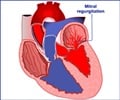Patients who have open-heart surgery and go home three days later are not at increased risk for complications

Dr. Malaisrie and colleagues identified patients who underwent nonemergency coronary artery bypass grafting (CABG) surgery and valve surgery between July 2004 and June 2017 at Northwestern Memorial Hospital. Researchers examined data from 478 patients. The patients were separated into two groups: 357 patients with a length of stay (LOS) greater than 3 days and 121 patients with a LOS less than 3 days.
Aside from postoperative atrial fibrillation rates (2% in the ?3 day LOS group and 19% in the >3 day LOS group), rates of other complications, 30-day readmissions, and mortality rates were comparable.
"Patients can go home after a shorter length of stay in the hospital without increased risk of complications and rehospitalizations," said Dr. Malaisrie. "Because we found no detrimental effect of accelerated discharge, both patients and physicians should not be averse to discharging patients when medically ready."
ERAS--pronounced E-ras--is a multidisciplinary treatment program designed to achieve quicker recovery for patients undergoing major surgery and offers sustainable improvement in the overall quality of care. First popularized in Denmark in the 1990s, it since has become more accepted. Over the past several years, ERAS programs have been incorporated into many surgical specialties, with general thoracic surgery recently joining the movement and heart surgery following soon after.
Research has shown that in other surgical fields that have adopted ERAS, hospital stays have shortened by 30% to 50%, while readmission rates and costs also decreased.
Advertisement
The program--still in development--will include a suite of modern care protocols based on the recently published guidelines from the ERAS Cardiac Society for optimal, evidence-based perioperative care in heart surgery.
Advertisement
"It has been shown in the statewide Michigan collaborative that more than 80% of preventable morbidity and mortality following cardiac surgery occurs outside of the operating room. It is now up to all of us to standardize evidence-based best practices in the recovery phase--to not just speed up discharge, but also to improve the patient-centered experience.
In addition, this will necessitate better preoperative counseling to guide realistic expectations supporting multimodal pain control, postoperative mobility, and family support, ensuring complete physical and psychological recovery from the stress of surgery."
The published recommendations describe 22 potential interventions, separated into sections that cover all phases of surgical care--preoperative, intraoperative, and postoperative--and each principle is graded according to strength and level of evidence. Some of the recommendations include the cessation of drinking alcohol and smoking, avoidance of prolonged fasting, the concept of "prehabilitation" (exercise training, nutrition optimization, and anxiety reduction), strategies for reducing opioid use and dependence after surgery, and the use of urinary biomarkers to identify patients at increased risk for acute kidney injury. The guidelines are meant to be flexible and individually tailored for each program.
"Multiple interventions are required for the success of an ERAS program," said Dr. Malaisrie. "There is no single magic bullet. Instead, it is through cumulative efforts that ERAS is successful for the patient. We would like to see the care of heart surgery patients be focused more on improving outcomes from the patient's perspective and less from the physician's."
Dr. Malaisrie anticipates that the Northwestern Medicine cardiac ERAS program will result in faster recoveries, reduced complications, decreased time in the hospital, lower costs, and improved patient/family satisfaction. In the future, the researchers plan to closely examine both traditional clinical endpoints and patient-reported outcomes from the program.
"Expectations for recovery after cardiac surgery are being reset in the current era," he said. "What does this mean for patients? It means that prolonged or taxing recovery is no longer required. Patients should know that recovery from heart surgery is not only quicker, but also better with ERAS programs."
Source-Eurekalert















